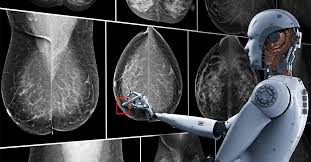Can Exercise Fight Cancer? This NASA-Inspired Therapy Says Yes! (5 minutes reading)
What do astronauts and cancer patients have in common? More than you'd think. Dr. Jessica Scott, a former NASA scientist now at Memorial Sloan Kettering Cancer Center, is pioneering research showing that exercise can counteract the physical toll of cancer treatments — just like it helps astronauts recover from zero gravity.
Her team found that regular, personalized exercise not only improves physical and mental health during cancer treatment but may also slow tumor growth. In a groundbreaking clinical trial, men with early-stage prostate cancer exercised at home using treadmills and wearable tech. The results? Just under four hours of weekly exercise reduced key cancer-related biomarkers — without any other treatment.
This research is the first to treat exercise like a drug: prescribed in specific doses, monitored, and tested for biological effects. While more studies are needed to prove long-term survival benefits, the early signs are promising.
The ultimate goal? To make exercise a standard, personalized part of cancer care — just like chemotherapy or radiation.
source: LINK

